Scientific Cultivation Self-Growth
By Zhang Xiya / Wuhan Experimental High School, Hubei Province
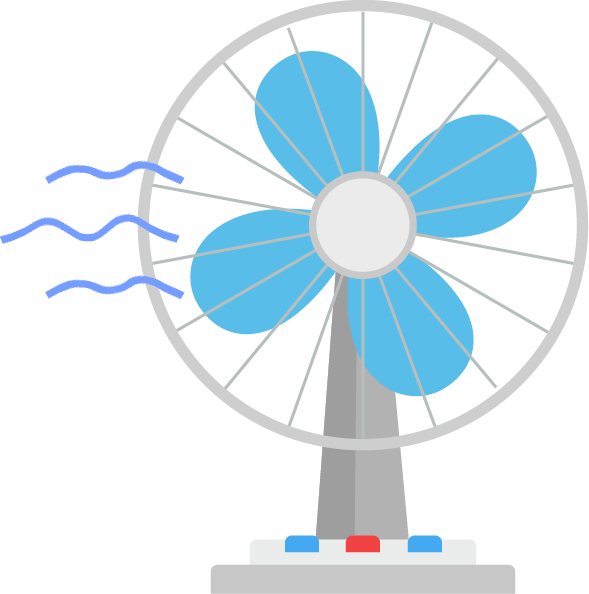

Introduction to the Talent Program
 “With youthful ambition, we dare to change the world.” As members of the new era, we should enhance our skills and grow in the fertile ground provided by our country. The one-year Talent Program has concluded, and looking back over the year, I have many reflections. When I first entered school, my understanding of the Talent Program was superficial, but after a year of training, I have gained a deeper understanding and insight. In my view, the Talent Program is a platform, a fertile ground. On this platform, we are closer to our goals, which helps us see the future more clearly and plan our life direction earlier; in this fertile ground, we absorb nutrients, take steps towards lofty goals, and move forward confidently. The Talent Program not only provides us with opportunities for growth but also allows us to stand at the forefront of science, looking towards the future with ambition. During the selection process for the Talent Program, I applied for the computer science discipline due to my strong interest in artificial intelligence, and after being accepted, I chose to study under Professor Feng Dan. The intensive training of the Talent Program takes place during the relatively low-pressure winter and summer vacations, during which I received systematic training from the program.
“With youthful ambition, we dare to change the world.” As members of the new era, we should enhance our skills and grow in the fertile ground provided by our country. The one-year Talent Program has concluded, and looking back over the year, I have many reflections. When I first entered school, my understanding of the Talent Program was superficial, but after a year of training, I have gained a deeper understanding and insight. In my view, the Talent Program is a platform, a fertile ground. On this platform, we are closer to our goals, which helps us see the future more clearly and plan our life direction earlier; in this fertile ground, we absorb nutrients, take steps towards lofty goals, and move forward confidently. The Talent Program not only provides us with opportunities for growth but also allows us to stand at the forefront of science, looking towards the future with ambition. During the selection process for the Talent Program, I applied for the computer science discipline due to my strong interest in artificial intelligence, and after being accepted, I chose to study under Professor Feng Dan. The intensive training of the Talent Program takes place during the relatively low-pressure winter and summer vacations, during which I received systematic training from the program.


Winter Camp Trial
 During the winter vacation, I participated in the winter camp organized by the Talent Program. Due to the impact of the COVID-19 pandemic, the winter camp was conducted online. Listening to lectures from professors at various universities during the winter camp was immensely beneficial. The workshop and group format was also quite novel, allowing me to meet friends from all over the country who share the same passion for computers. We learned from and helped each other during discussions. When determining the research direction for the winter camp, I chose a task that was relatively challenging for my level—image clustering related to artificial intelligence. I made this choice because I am very interested in artificial intelligence, and if I gain insights from this task, it will greatly aid my future studies. During the task, although I faced significant pressure, the careful guidance of my mentor and the enthusiastic suggestions from my peers gave me great confidence. After overcoming various difficulties, my understanding of artificial intelligence deepened. During the decision-making process for the algorithm, due to disagreements within the group and the inherent difficulties of online communication, we had intense discussions. Fortunately, everyone eventually accepted the mentor’s suggestion, and after researching more materials online, we decided to use a simple and quick algorithm. Through the unremitting efforts of the group members, the final results were unexpectedly perfect. Participating in the winter camp allowed me to gain a deeper understanding of my abilities and subtly enhance my skills.
During the winter vacation, I participated in the winter camp organized by the Talent Program. Due to the impact of the COVID-19 pandemic, the winter camp was conducted online. Listening to lectures from professors at various universities during the winter camp was immensely beneficial. The workshop and group format was also quite novel, allowing me to meet friends from all over the country who share the same passion for computers. We learned from and helped each other during discussions. When determining the research direction for the winter camp, I chose a task that was relatively challenging for my level—image clustering related to artificial intelligence. I made this choice because I am very interested in artificial intelligence, and if I gain insights from this task, it will greatly aid my future studies. During the task, although I faced significant pressure, the careful guidance of my mentor and the enthusiastic suggestions from my peers gave me great confidence. After overcoming various difficulties, my understanding of artificial intelligence deepened. During the decision-making process for the algorithm, due to disagreements within the group and the inherent difficulties of online communication, we had intense discussions. Fortunately, everyone eventually accepted the mentor’s suggestion, and after researching more materials online, we decided to use a simple and quick algorithm. Through the unremitting efforts of the group members, the final results were unexpectedly perfect. Participating in the winter camp allowed me to gain a deeper understanding of my abilities and subtly enhance my skills.
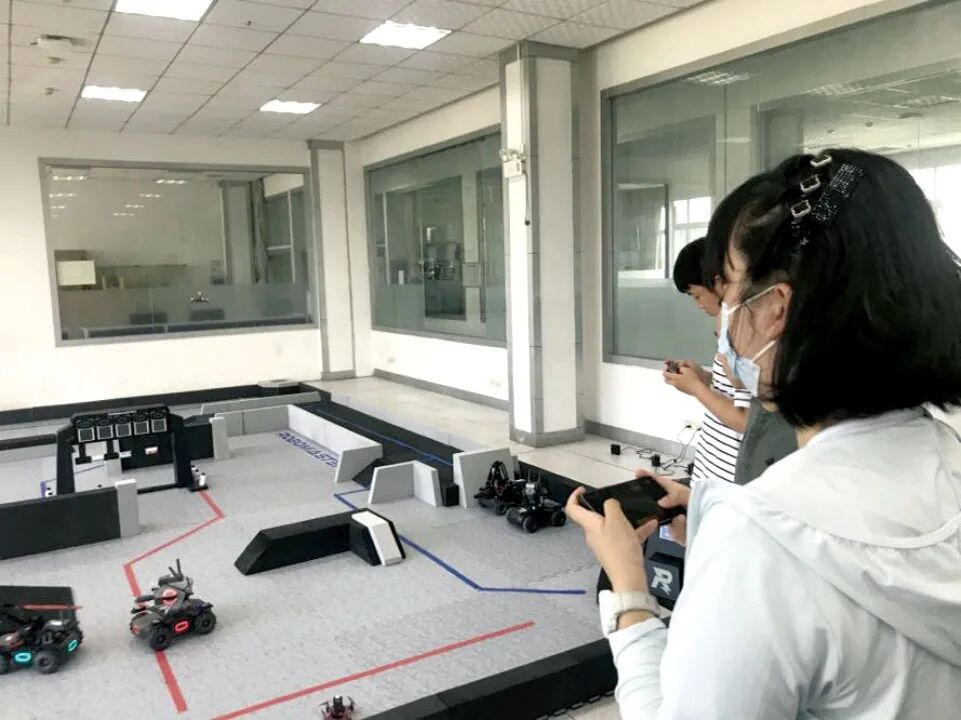

Maker Competition Sharpens the Mind
 In the following period, the mentor and students engaged in offline communication. During the discussions, the mentor tailored personalized learning suggestions for each of us based on our interests and the programming languages we had learned. During the communication session, the mentor also led us to visit the computer laboratory at Huazhong University of Science and Technology, allowing us to experience the charm of the integration of algorithms and hardware up close. After the communication session, I kept looking for opportunities to try combining programming with hardware. When the school’s information teacher learned that I was a Talent Program student, they recommended me to the school, giving me the opportunity to participate in the Maker Competition, where I finally got to work with hardware. During the Maker Competition, the most important step was selecting a topic. After careful consideration and communication with my Talent Program mentor, I chose the topic “Smart Cane for the Blind.” With the development of technology, as buildings rise and cars travel, we enjoy the convenience of technology but often overlook the feelings of marginalized groups. With more and more obstacles on the streets, do they hinder the mobility of the blind? These issues seem to be rarely considered. My original intention in creating the smart cane was to let the power of technology benefit the blind community more and make their travel safer.
In the following period, the mentor and students engaged in offline communication. During the discussions, the mentor tailored personalized learning suggestions for each of us based on our interests and the programming languages we had learned. During the communication session, the mentor also led us to visit the computer laboratory at Huazhong University of Science and Technology, allowing us to experience the charm of the integration of algorithms and hardware up close. After the communication session, I kept looking for opportunities to try combining programming with hardware. When the school’s information teacher learned that I was a Talent Program student, they recommended me to the school, giving me the opportunity to participate in the Maker Competition, where I finally got to work with hardware. During the Maker Competition, the most important step was selecting a topic. After careful consideration and communication with my Talent Program mentor, I chose the topic “Smart Cane for the Blind.” With the development of technology, as buildings rise and cars travel, we enjoy the convenience of technology but often overlook the feelings of marginalized groups. With more and more obstacles on the streets, do they hinder the mobility of the blind? These issues seem to be rarely considered. My original intention in creating the smart cane was to let the power of technology benefit the blind community more and make their travel safer.

Once the topic was determined, the next step was to move forward towards the goal without hesitation. During the production process, since the hardware provided by the school could only be programmed in a specific software—Mind+—the completely unfamiliar development environment caused me many troubles from the start. Midway through the production, I switched from a control board to a Raspberry Pi, and I had to learn everything from scratch, including programming logic, syntax, and hardware usage. During this process, both the school’s information teacher and my Talent Program mentor provided me with great help. I gradually reviewed the materials provided by the teacher, starting with the simplest wiring, and slowly became proficient in the monotonous daily routine. The combination of programming and hardware had a unique appeal to me, and my interest in computers gradually shifted from artificial intelligence to creating innovative products with my own hands. Every time I saw a string of code inputting into the control board and the device in my hand moving according to my intentions, that sense of accomplishment was unparalleled. However, just as I was about to complete the production, I discovered significant flaws in the hardware’s response. After several checks and explorations, I finally found that a small error in the code was preventing the results from being perfectly realized. After careful modifications, I finally achieved the expected effect. This little episode made me realize that in the field of computer science, the most important thing is not only mastering programming syntax and having clear logic but also being able to endure solitude and maintain a calm mind. When the cane was finally completed, the joy in my heart was indescribable; I felt as if the cold components had come to life in my hands. The greatest gain from this Maker Competition was not the award I received but the transformation within myself. I re-evaluated myself and realized that my interest in computers is not just because artificial intelligence is cool in movies, but because technology can bring convenience to people. Rather than focusing solely on artificial intelligence, I hope to create more innovative products and turn the novel ideas in my mind into tangible realities through practice.
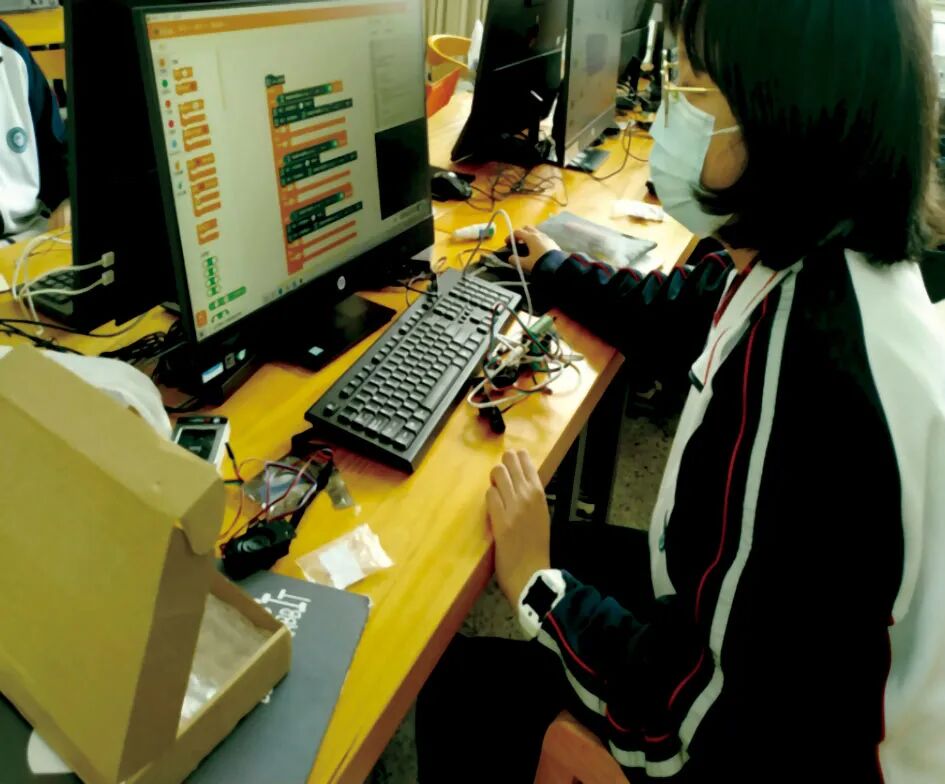

Summer Camp Promotes My Growth
 During the summer vacation, I participated in the “Robomaster Summer Camp” hosted by Huazhong University of Science and Technology. I was somewhat surprised that the summer camp adopted a task-based approach, where we needed to complete tasks each day and then explain them in the evening. In the first few days, I was caught off guard by this format and fast-paced learning style, but fortunately, I adjusted my mindset in time and learned to use the internet to independently research basic knowledge, which not only provided theoretical support for completing tasks but also made my explanations more focused and targeted. The Robomaster summer camp did not only focus on programming; it also required a preliminary understanding of camera imaging principles and basic modeling knowledge, which raised the bar for my abilities and benefited me greatly. Through the training in the summer camp, I realized that some “extracurricular knowledge” that I thought was unnecessary or irrelevant—such as 3D modeling in programming—might unexpectedly come in handy.
During the summer vacation, I participated in the “Robomaster Summer Camp” hosted by Huazhong University of Science and Technology. I was somewhat surprised that the summer camp adopted a task-based approach, where we needed to complete tasks each day and then explain them in the evening. In the first few days, I was caught off guard by this format and fast-paced learning style, but fortunately, I adjusted my mindset in time and learned to use the internet to independently research basic knowledge, which not only provided theoretical support for completing tasks but also made my explanations more focused and targeted. The Robomaster summer camp did not only focus on programming; it also required a preliminary understanding of camera imaging principles and basic modeling knowledge, which raised the bar for my abilities and benefited me greatly. Through the training in the summer camp, I realized that some “extracurricular knowledge” that I thought was unnecessary or irrelevant—such as 3D modeling in programming—might unexpectedly come in handy.
Looking to the Future with Ambition
 I have many beautiful expectations for the future. Perhaps the busy schedule of my second year in high school will not allow me to continue participating in the Talent Program and receive more in-depth and detailed training, but I will still maintain my passion for computer science and strive to learn with greater enthusiasm in the coming years of high school, hoping to contribute more to the country’s development in the future. The memories are too abundant; how can black and white words fully express my many feelings! Over this year, the most prevalent feeling in my heart is gratitude—gratitude for the Talent Program for providing me with a platform to pursue my dreams, and gratitude for the support from my mentors, friends, and family.
I have many beautiful expectations for the future. Perhaps the busy schedule of my second year in high school will not allow me to continue participating in the Talent Program and receive more in-depth and detailed training, but I will still maintain my passion for computer science and strive to learn with greater enthusiasm in the coming years of high school, hoping to contribute more to the country’s development in the future. The memories are too abundant; how can black and white words fully express my many feelings! Over this year, the most prevalent feeling in my heart is gratitude—gratitude for the Talent Program for providing me with a platform to pursue my dreams, and gratitude for the support from my mentors, friends, and family.
Zhang Xiya
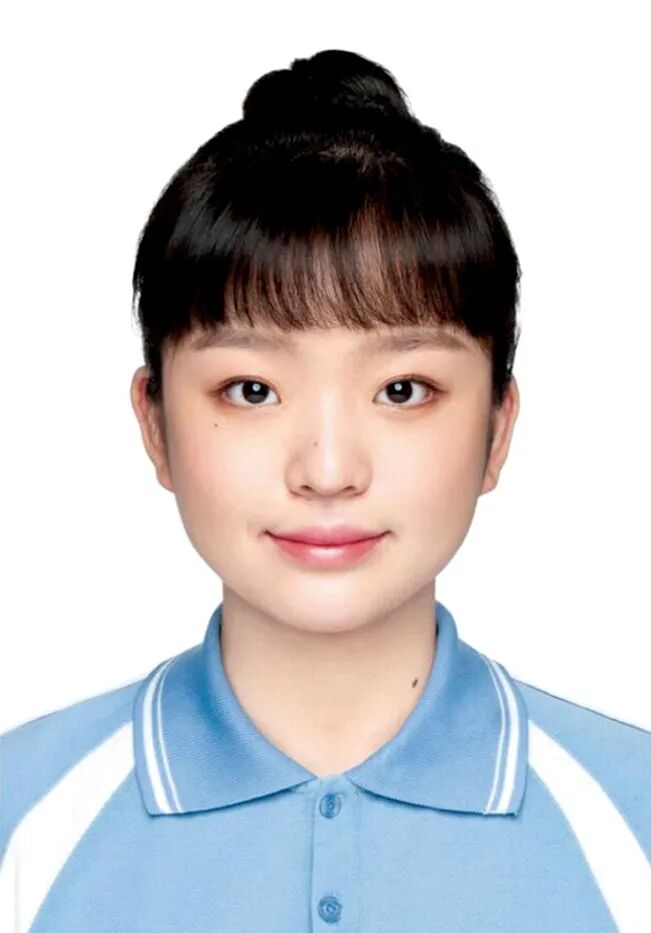
2021 Talent Program Computer Science Student
Studying at Wuhan Experimental High School, under the guidance of Professor Feng Dan from Huazhong University of Science and Technology. Completed the project “Smart Cane for the Blind” and won the second prize in the “Creative Intelligence Manufacturing” category of the high school group in the Hubei Province Student Information Literacy Improvement Practice Activity.
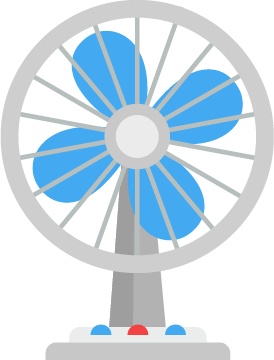
Originally published in the “China Science and Technology Education” magazine, Issue 5, 2022, in the 8-9 o’clock column, Author: Zhang Xiya / Wuhan Experimental High School. Members of the China Youth Science and Technology Instructors Association can click “Read Original” to log in to the magazine’s official website to browse the full text for free.
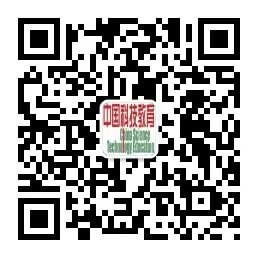
Official Account: China Science and Technology Education
WeChat ID: cnstedu
Welcome to subscribe and share